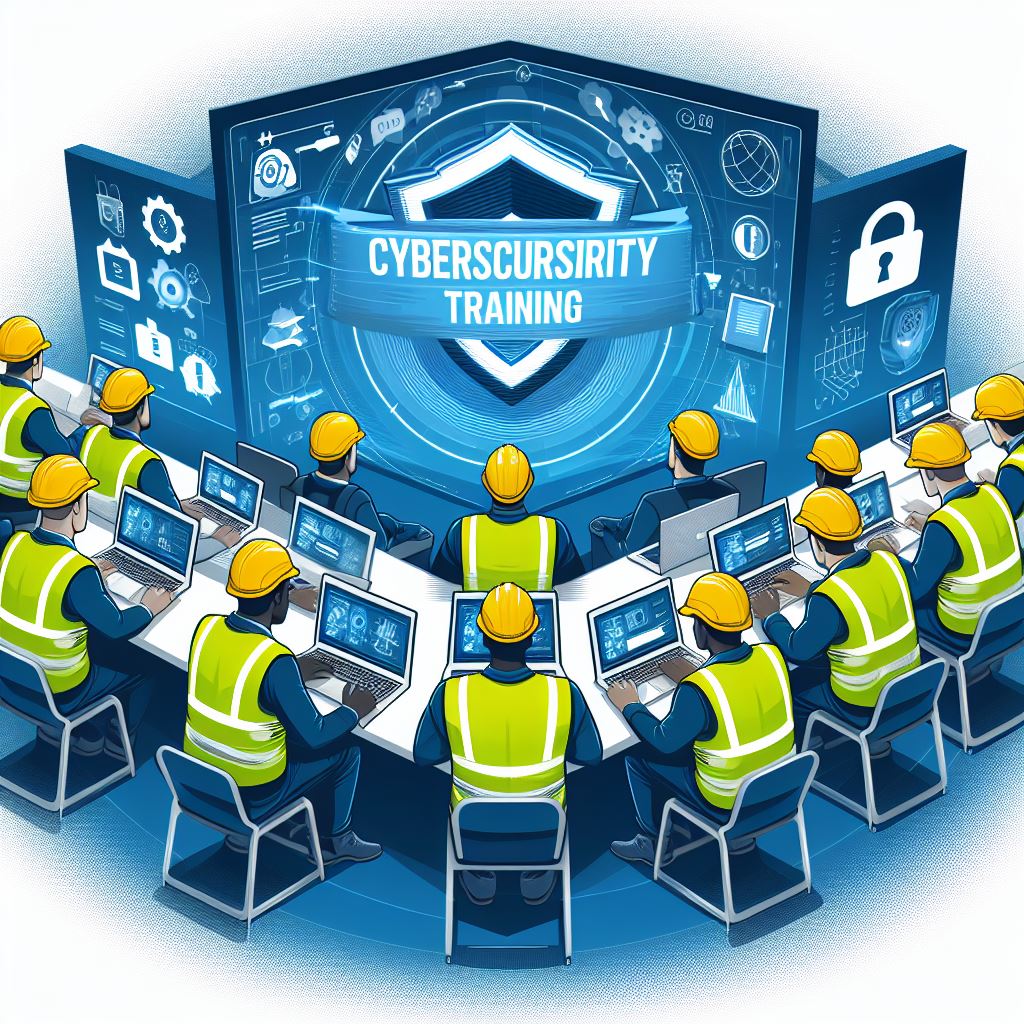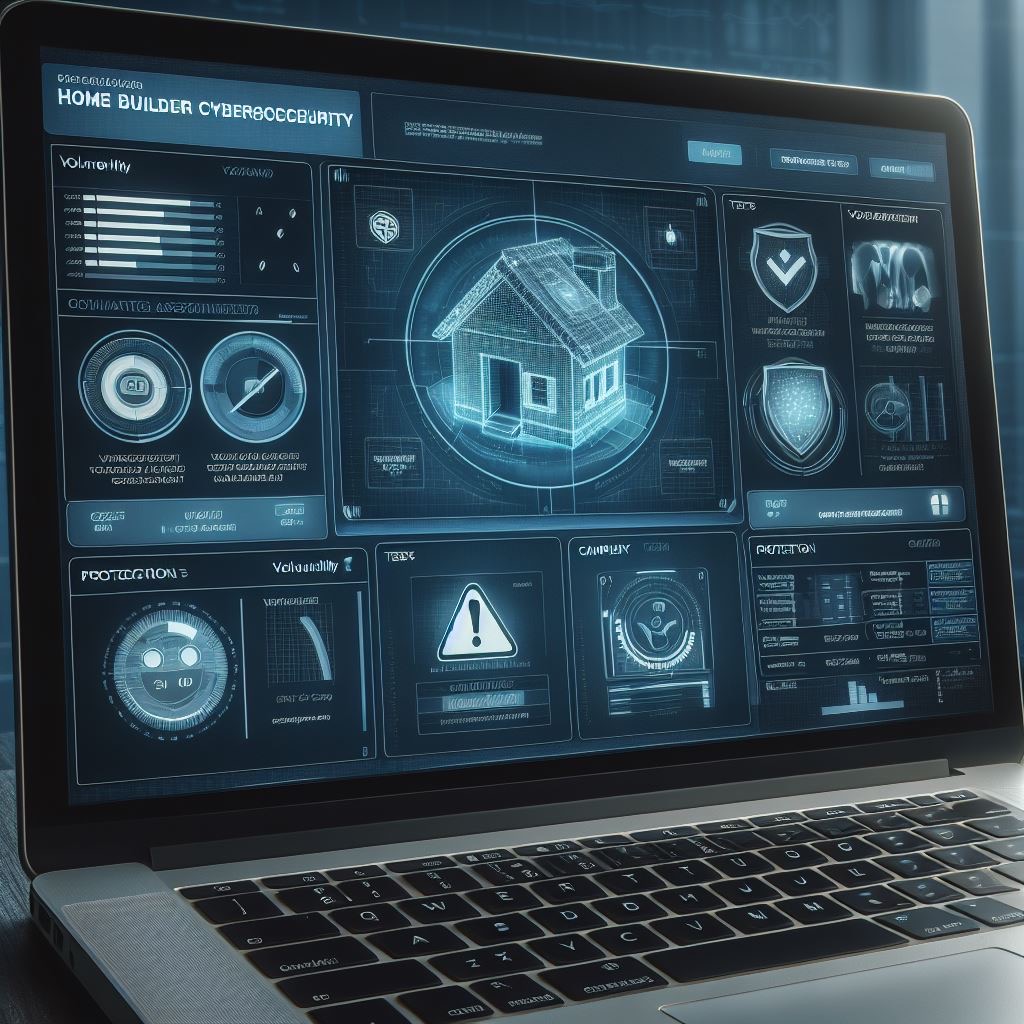
Defying All Odds - Day 29: Secure Application Development in the Construction Industry
“You have to be prepared to fight and finish your own battles.” - Jim Harbaugh
Introduction:
Secure application development is crucial for construction companies to ensure that the software and applications they use are free from vulnerabilities and can withstand cyber attacks. In this article, we will explore best practices for secure application development in the construction industry. From conducting regular code reviews to implementing secure coding practices and performing penetration testing, these practices will help construction companies build and deploy applications with robust security measures. By prioritizing secure application development, construction companies can reduce the risk of software vulnerabilities and protect their systems and data.
In our featured story, we talked about how ZATIS helped a construction company defy the odds and win in the battle against hackers and cybercriminals. Join us today as we discuss the best practices for a secure application development in a construction company.

In football, every play starts with a solid game plan. The team strategizes, devises plays, and executes them on the field. When the plays are well-designed and executed securely, the team has a higher chance of scoring. Similarly, in the construction industry, secure application development is like devising a solid game plan. It involves developing software and applications with robust security measures, reducing the risk of software vulnerabilities, and protecting systems and data.
1. Understanding the Importance of Secure Application Development

Just like a well-executed play can lead to a touchdown, secure application development can lead to more secure operations. It ensures the software used by construction companies is free from vulnerabilities and can withstand cyberattacks, thereby protecting sensitive data and systems.
2. Implementing Secure Coding Practices

Secure coding is akin to a football player mastering their technique. It's about doing the basics right - every time. By following secure coding practices, developers can prevent common vulnerabilities and ensure the software is secure from the outset.
3. Conducting Regular Code Reviews

In football, teams often review their plays to identify any weaknesses. Similarly, regular code reviews can help identify any potential vulnerabilities in the code and rectify them before deployment.
4. Performing Penetration Testing

Penetration testing is like a scrimmage in football. It's a simulated cyberattack on your software to identify vulnerabilities. Just like a team learns and improves from each scrimmage, regular penetration testing can help improve the security of your applications.
5. Prioritizing Security in the Development Life Cycle

In football, security is not just about the defensive line, but the entire team's responsibility. Similarly, security should be a priority at every stage of the software development life cycle.
Secure application development is more than just a best practice; it's a necessity in today's digital landscape. By implementing secure coding practices, conducting regular code reviews, and performing penetration testing, construction companies can protect their valuable data and systems. Remember, in the face of cybersecurity threats, it's not about the size of the team but the strength of the defensive play. So, let's line up, construction industry, and make every play count!

The Importance of Proactive Cybersecurity Measures
To mitigate the risks associated with cyber threats, construction companies must adopt a proactive approach to cybersecurity. Implementing robust cybersecurity measures can help protect the company's assets, maintain client trust, and ensure the smooth operation of projects. Here are some key steps that construction companies can take:
1. Employee Education and Training:

Employees are often the first line of defense against cyber threats. Providing comprehensive training on cybersecurity best practices, such as identifying phishing emails and using strong passwords, can significantly reduce the risk of successful attacks.
2. Regular Security Assessments:

Conducting regular security assessments, including vulnerability scanning and penetration testing, can identify potential weaknesses in the company's systems and infrastructure. This allows for timely remediation before cybercriminals can exploit these vulnerabilities.
3. Secure Network Infrastructure:

Implementing robust firewalls, intrusion detection systems, and encryption protocols can help safeguard the company's network infrastructure from unauthorized access and data breaches.
4. Access Control and Authentication:

Implementing strong access control measures, such as multi-factor authentication and role-based access controls, can ensure that only authorized individuals have access to sensitive information.
5. Data Backup and Recovery:

Regularly backing up critical data and implementing a robust disaster recovery plan can help minimize the impact of a cyber-attack and facilitate the restoration of operations.
Conclusion:
In an increasingly digitized world, the construction industry must recognize the importance of cybersecurity and take proactive measures to protect its valuable assets. Neglecting cybersecurity can have severe consequences, including financial losses, reputational damage, project delays, legal and regulatory compliance issues, and loss of intellectual property. By prioritizing cybersecurity and implementing robust measures, construction companies can safeguard their operations, maintain client trust, and ensure their long-term success in an evolving digital landscape.
Want to know if your construction company is at major risk of getting hacked? Click here for a FREE 15-Minute Cyber Consult.

5 Reasons Your Construction Company Needs a Cybersecurity Risk Assessment. 👊
It is important for construction companies to conduct a cybersecurity risk assessment for several reasons:
1. Protection of sensitive data:
Construction companies handle a vast amount of sensitive data, including financial information, project details, client information, and employee records. Conducting a cybersecurity risk assessment helps identify potential vulnerabilities and ensures appropriate safeguards are in place to protect this data from unauthorized access, data breaches, or theft.
2. Mitigating financial losses:
Cyberattacks can result in significant financial losses for construction companies. These losses can stem from data breaches, ransomware attacks, or the disruption of critical systems. By conducting a cybersecurity risk assessment, companies can identify potential weaknesses in their IT infrastructure and take proactive measures to mitigate the financial risks associated with cyber threats.
3. Maintaining business continuity:
A successful cyber-attack can disrupt construction projects, delay timelines, and impact the overall business operations. By conducting a risk assessment, construction companies can identify potential vulnerabilities and implement robust cybersecurity measures to ensure business continuity. This includes having backup systems, disaster recovery plans, and incident response protocols in place.
4. Protecting reputation and client trust:
Construction companies rely on their reputation and client trust to secure new projects and contracts. A cybersecurity breach can undermine trust, damage the company's reputation, and lead to the loss of clients. By conducting a risk assessment and implementing appropriate cybersecurity measures, construction companies can demonstrate their commitment to protecting client data and maintaining a secure operating environment.
5. Compliance with regulations:
Construction companies may be subject to industry-specific regulations and legal requirements regarding data protection and cybersecurity. Conducting a risk assessment helps identify any gaps in compliance and ensures that the company meets the necessary regulatory obligations.
Overall, conducting a cybersecurity risk assessment allows construction companies to proactively identify and address potential vulnerabilities, protect sensitive data, mitigate financial losses, maintain business continuity, protect their reputation, and comply with relevant regulations.
Other resources to help you get started with Cybersecurity
Start your own Cybersecurity initiative:
Here is a quick checklist to get you started with your Cybersecurity initiative. Remember imperfect action beats inaction, get started and keep pushing for progress and awareness with your people.
Update your software
Secure your files
Require passwords
Encrypt devices
Use multi-factor authentication
Protect your wireless network
Make "SMART SECURITY" your business as usual
Require strong passwords
Train all staff
Have a plan
